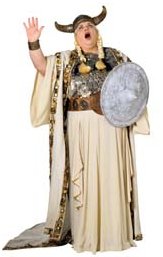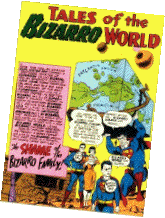
 What I would say to Al Gore
What I would say to Al Gore 
I watched Al Gore for the second night in a row on Keith Olbermann's show.
I wrote my Turning the Internet Off piece as a response to what he said on last night's show, and to Olbermann's Special Comment.
Both of them say online systems are the answer, but they're not sure how. Trust me, online systems are not the answer.
At best they can be used to keep people who want to be informed better informed. Yes, that's important and we should make a big investment in making this work better, and it should not be done by Silicon Valley tech companies (or NY tech companies) because they will behave just like the corporations they are. And we know corporations are the problem (as Gore said tonight). But that's not the point.
The problem we have can't be solved by online systems.
Here's the problem.
1. Elections have consequences.
2. The voters who elected the Tea Party folk (and probably a lot of others) don't seem to understand this.
3. They vote for candidates as if elections are a reality show. American Idol. Who ever sings the best or makes the other guy look more stupid, that's who they vote for.
Dear Mr Olbermann and Mr Gore, here is the core of the problem.
This isn't a reality show, as both of you understand so well.
This is reality.
And today, it almost became very real.
Very very real.
A friend of mine, Nicco Mele, a father of two young boys and one of the people you should talk with if you want to know what's possible on the Internet, said he thought maybe it wasn't such a bad idea if we default, when I asked him about it a couple of weeks ago. I didn't agree then, because I'm very conservative about things like the US defaulting. But now that we've been through this, and I've connected some dots for myself that I hadn't connected before, I think he may have had a point.
 Today the Fat Lady almost sang for the US. She was just off-stage. All dressed up and ready to go. At the last minute they called her back. One of these days she's going to come out and sing. That's what's so freaky.
Today the Fat Lady almost sang for the US. She was just off-stage. All dressed up and ready to go. At the last minute they called her back. One of these days she's going to come out and sing. That's what's so freaky.
Fact is, most of the people who voted for those Tea Party degenerates come from poor Southern rural states, and I bet the people who voted for them are either barely middle class, or former middle class, or close to being former middle class. In other words exactly the people who will hurt the most from the Tea Party shenanigans. Maybe it would have been best if they suffered the shock of poverty, the despair of the bottom fully dropping out of their lives, to learn that their vote isn't a joke and isn't a message. That if they make a mistake about voting, they will not just make a bunch of liberals angry (so says their idol, Rush Limbaugh) they will destroy their own lives. Somehow they have to make a connection between who they vote for and their continued existence. No matter how bad it's become for them, and I believe it's very bad, it's going to get a lot worse if we don't turn back now and get ourselves running a real country instead of a reality show country.
In any case, forget about the Internet, Mr Gore. Think about how you can paint a picture for those people that they will see, that they will understand that will make sense to them. This is the challenge.
If the Internet plays a role in that, great. We can do anything on the Internet. But I suspect it's going to just be a tool, at best. It is not itself an answer.
BTW, one thing I'd come up with, right off the bat, are some new pledges for candidates. Like I pledge to not raise taxes on the middle-class. Or I pledge not to cut Medicare. Or I pledge to reform taxes so the richest people pay their share. And I'd get off TV and get busy in the back rooms Mr Gore, twisting those arms and getting those sigs. And then give them the money they need to kick some tea party butt.
 What it should say on my headstone
What it should say on my headstone 
I seem to be writing my epitaph today.
Hope this isn't foreboding something bad. ![]()
I used to say (and still do) that the headstone on my grave should say "He's not diggin anymore."
That was kind of a joke, as all good headstone lines should be.
But then I thought, maybe when my time is up, they'll have multimedia headstones!
In that case, please use the closing scene from Dr Strangelove.
It's optimistic! ![]()
 Who I am
Who I am 
People introduce me as the "inventor" of RSS, but that's not correct.
I am a software developer. Many years ago I realized that computers are primarily useful as communication tools. That's what I've devoted my career to. Making great communication tools with computers.
So that meant I worked on a lot of things, including RSS.
But I don't only develop the software, I bring it to people. To me software is a performing art. It's not like a painting that sits on the wall, it's more like a building, or a train station. If you're really good at software, you end up making a train station that a lot of people use. That's what success means to me. It's never been about making more money, although I've made enough money to be independent. But when I was a grad student I had that kind of money too. You can be independent by keeping your needs modest. I've learned that traveling light is more pleasant than putting down deep roots. I like to move around. ![]()
The software I've created: outliners, a scripting environment, content management systems, blogging tools, RSS aggregators, podcasting. Those are the major areas. I'd say my work in blogging, RSS and podcasting was seminal -- in that it created more than products, it created human activities. I'm better at that than I am at making products that everyone uses. Probably because I don't patent, and I'm very open about my development process.
I also just make tools for myself. I'm a web writer, so I have great web writing tools. I love to read news, so I have the best news reading software. I not only write and do an occasional podcast, but I have a dream of organizing huge structures of human-created and curated information. That's my current project, which I call the World Outline.
I didn't invent RSS. I don't believe in invention. But I did work hard, and smart and had great timing, and made the right connections to be the person who brought RSS into existence as a human activity. And for that, I'm extremely proud.
I think of myself as a media hacker.
I guess if you only have five words for a bio, "guy who gave us RSS" is okay. I think blogging was bigger, and RSS is part of blogging. I really did start blogging, from a software standpoint, and that's not chopped liver. (Although most of the people who write about this stuff aren't software developers, so they seem to take it for granted it was always there. It wasn't, it was a synthesis and required belief. Most people thought content management had to be hard. I absolutely did not think it had to be any harder than word processing. But people thought that was weird.)
BTW, the President is wrong about patents. They don't help inventors.
PS: XML-RPC seems to be largely forgotten, but I think it's very cool, and when I build internal systems I always use it because it's deeply integrated in my programming environment. They really are remote procedure calls, no serializing or deserializing. That's all automatic. Even so it's my #2 site, after Scripting News. A bunch of other people still use it, obviously. The vision was to use the net as a web of applications. That of course has happened.
PPS: Favorite movies (off the top of my head, in no special order): Kill Bill, Pulp Fiction, The Departed, The Godfather, Chinatown, Casablanca, Beetlejuice, The Matrix, Dr Strangelove.
PPPS: I also ride a bike, almost every day. Like today! Map. 1 hour 7 minutes. 11.62 miles.
 On being a parasite
On being a parasite 
Putin said yesterday that the United States is a parasite on the global economy.
Let me translate that for you.
Putin: The oligarchs who tell me what to say told me to say that the oligarchs who tell Obama what to say are parasites on the global economy.
You may now return to watching CNN.
 Turning the Internet off
Turning the Internet off 
 People who don't know me, and what I've spent my career doing, will think I'm some kind of Luddite, but of course I'm anything but that.
People who don't know me, and what I've spent my career doing, will think I'm some kind of Luddite, but of course I'm anything but that.
I love the Internet, both because I remember its promise in the early days, and because today I'm as addicted to it as anyone is.
It's true that the Internet had the ability to subvert power structures, but that was before the power structures embraced the Internet, and learned how to control it. We're now, unfortunately, on the other side of that hump.
People point to the revolutions of the Arab Spring and the role that the Internet played in helping organize the protests.
Two responses.
1. That was then. Whatever power there was in organizing via Internet, is now fully understood by your adversaries. They have defenses in place to keep the Internet from toppling them. And in some cases, they are using the Internet to disorganize the organizers. How do I know? Because they can. And I've read history. And the consultants they hire are every bit as smart as I am, probably in some cases, quite a bit smarter.
2. The biggest mistake they made in Egypt was to turn the Internet off. When they did, people had no choice but to get out of their homes, and onto the street. They could no longer find out what was "going on" simply by staying at home. Which is exactly where the government wants them if their goal is to keep a revolution supressed.
So if you want to create change, in 2011 and beyond, at least some of your time is going to have to be spent off the grid. Then your conversations can't be recorded and preserved and used against you in a court of law. Either that, or do it all out in the open, so everyone knows that they're being watched, so there is no illusion of privacy.
I'm not telling you to turn the Internet off. God knows I haven't been able to do that myself. But also don't delude yourself into thinking that tweeting and facebooking are revolutionary acts. They're about as revolutionary as watching CNN.



